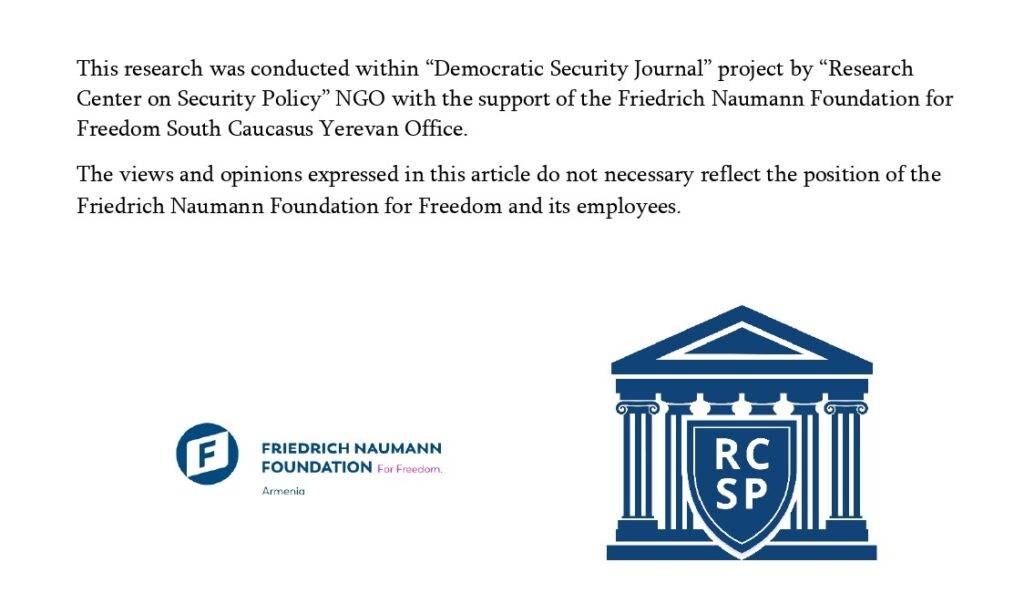General Information
On March 30, the Central Electoral Commission decided[i] that early city council elections will be held in the communities of Gyumri and Parakar. This decision[ii] is based on the government’s decree to appoint early city council elections in the Gyumri community. This article will focus solely on the political developments and institutional environment in the context of the early elections in Gyumri. Additionally, it is important to emphasize that, in fact, these elections are the last major elections before the 2026 parliamentary elections (unless the need arises for early elections in other communities), and for political forces and responsible bodies, they are somewhat preparatory in nature.
Participants in the Gyumri City Council Elections
Nine political forces—six political parties and three alliances—will participate in the Gyumri City Council elections. These are as follows:
• Country of living Party
• Democratic Alternative Party
• My Strong Community Party
• Workers’ Socialist Party of Armenia
• Mother Armenia Alliance (Intellectual Armenia Party, My Struggle, My Homeland Party)
• Our City Alliance (Homeland Party, United Armenia Party)
• Civil Contract Party
• Communist Party of Armenia
• Euro-Alliance (Republic Party, Armenian European Party, For the Protection of Democracy in the Republic Alliance Party)
In the local self-government elections, the threshold for political parties is set at 4%, while for alliances, it is 6%. It is noteworthy that, unlike parliamentary elections, even if one or two forces exceed the threshold, the city council will be formed from them. In contrast, the electoral code for the National Assembly requires at least three forces to participate in the distribution of mandates.
The election campaign began on March 15 and will conclude one day before the voting, on March 29. Based on the analysis of the campaign content and participants’ speeches, we can note that these elections have generated significant community and public interest.
In the previous two instances of city council elections in Gyumri, the participation of political forces and residents of Gyumri looked as follows:
| Election | Number of Political Forces | Voter Turnout Percentage |
| 2016 | 11 | 36.2% |
| 2021 | 10 | 24% |
It should be noted that in the elections preceding 2016, the members of both the city council and the mayor of Gyumri were elected directly using the majoritarian electoral system. Therefore, comparing these elections with previous ones using the above criteria is not entirely relevant. It can be assumed that, despite the relatively smaller number of participating political forces, the voter turnout will likely be higher than in the 2021 elections.
From the Previous Council to the Appointment of Snap Elections: A Backstory
The previous Gyumri City Council was formed following the municipal elections held on October 17, 2021. A total of 10 political parties and alliances participated in these elections. Voter turnout was approximately 24%. No single party or alliance secured a majority, resulting in a fragmented council. The distribution of the 33 council mandates was as follows:
Balasanyan Alliance: 14 mandates, Civil Contract: 11 mandates, Zartonk: 4 mandates, Republican Party: 2 mandates, Country of living: 2 mandates
To establish the executive body and elect the community leader, the two leading entities—Balasanyan Alliance and Civil Contract—entered into a cooperation agreement[iii]. As a result, the Balasanyan Alliance’s candidate was appointed as the mayor, and Civil Contract’s nominees were selected as deputy mayors.
However, in December 2023, Civil Contract unilaterally terminated the cooperation agreement. The stated reasons included concerns that “Gyumri is not being governed in accordance with Armenian legislation” and that “shadow governance practices are undermining the effectiveness of both the city administration and Civil Contract’s representatives within it[iv].” Consequently, Civil Contract shifted to an opposition role, while the Balasanyan Alliance assumed sole control over the city’s administration.
The governance of the city under this arrangement lasted approximately ten months. In October-November 2024, individuals included in the electoral list of the ruling Balasanyan Alliance submitted requests to the Territorial Electoral Commission to withdraw from the list. Concurrently, members of the Balasanyan Alliance, including the mayor and the first deputy mayor, resigned their council mandates. As a result, it became impossible to fill the vacant council seats. These developments were linked to the initiation of criminal proceedings involving Samvel Balasanyan and his son, pertaining to the illicit sale of land plots[v].
Following the forfeiture of 13 council mandates—including the mayor’s and deputy mayor’s positions—a governance crisis ensued. The Civil Contract party, having gained a majority, declared their intention neither to nominate a mayoral candidate nor to support others. Despite the legal possibility of forming a new municipal administration and convening council sessions with the remaining 20 members, Civil Contract justified their stance by asserting, “Decisions in Gyumri should be made by its residents; the formation of local government is the prerogative of the people of Gyumri, who must determine their next mayor.[vi]“
Subsequently, Prime Minister Nikol Pashinyan announced that to resolve the governance impasse, early elections were necessary. In the interim, a municipal leader would be appointed. The selection of this interim leader was to be determined through a primary election held in Gyumri from December 8 to 10. The winner of this primary would also be the Civil Contract’s candidate in the forthcoming early elections.
The primaries involved seven candidates from among the members and supporters of the Civil Contract party. Approximately one thousand residents of Gyumri participated in the voting, resulting in Sarik Minasyan’s victory.
Concurrently, legislative amendments were enacted to facilitate the appointment of an interim municipal leader. On December 5, 2024, the National Assembly adopted an amendment to the Law on Local Self-Government, stipulating that if, following the premature termination of a council’s powers by the Government of the Republic of Armenia, both the positions of the community leader and the deputy community leader are vacant, or if there are circumstances hindering the deputy’s ability to exercise their powers, the Prime Minister shall appoint an acting community leader for urban communities, and the regional governor for rural communities, within three working days. This acting leader will serve until the newly elected community leader assumes office in accordance with the law.
Accordingly, on December 13, Prime Minister Pashinyan appointed Sarik Minasyan, the winner of the Civil Contract’s primaries, as the acting mayor of Gyumri, entrusting him with duties until the new council’s powers are inaugurated[vii].
Conclusion
An analysis of the current political climate indicates that, despite significant public interest, no single participant appears poised to secure an absolute majority in the upcoming elections. This scenario underscores the critical importance of post-election developments, particularly coalition-building efforts aimed at establishing municipal governance. The previous unsuccessful attempt at coalition governance, which precipitated these early elections, highlights the potential for fostering more robust political collaborations. However, there remains a risk that non-political solutions could be sought to address post-election challenges, a tendency that could deepen political polarization and heighten societal tensions.
Tigran Mughnetsyan
[i] https://www.e-gov.am/gov-decrees/item/43869/
[ii] https://res.elections.am/images/Decisions/20.02.25/25.2_A_20-02-2025.pdf
[iii] https://www.azatutyun.am/a/31537061.html
[iv] https://www.azatutyun.am/a/32716921.html
[v] https://www.azatutyun.am/a/samvel-balasanyan-dzerbakalelou-oroshoum-e-kayatsvel-sev-berdi-harakits-hoghataratskneri-%D6%85tarman-gortsov/33162199.html
[vi] https://www.aravot.am/2024/11/08/1453433/
[vii] https://www.e-gov.am/gov-decrees/item/43869/


